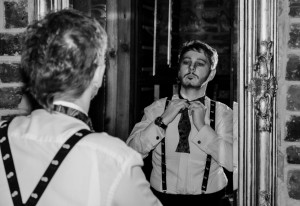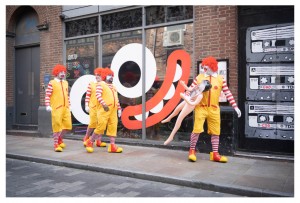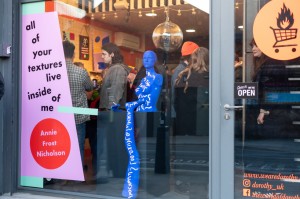Subverting Surveillance And Corporate Control: FutureEverything 2015 — Reviewed
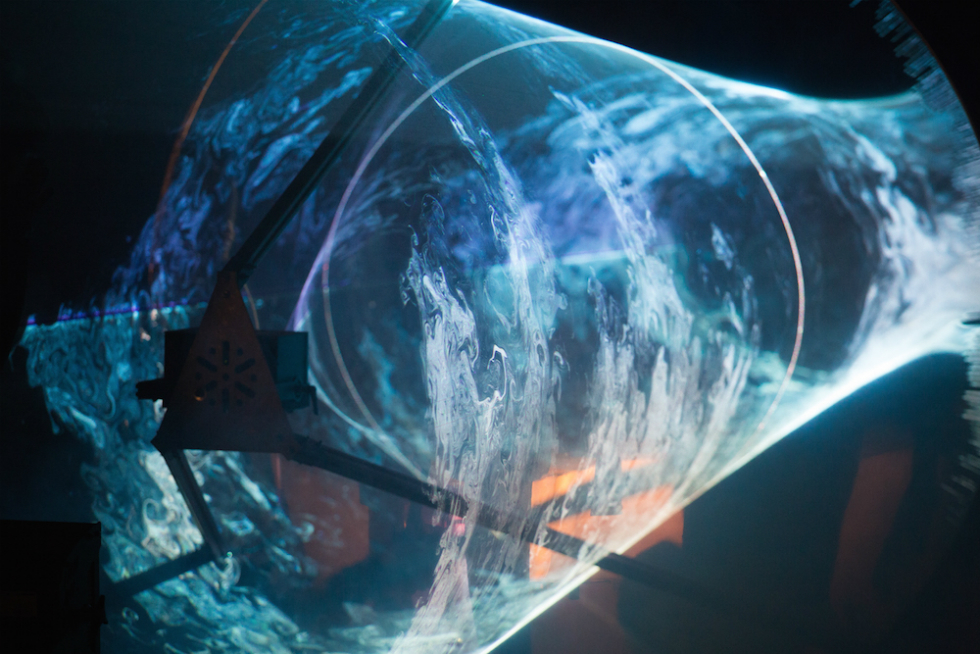
Another year older, another year wiser? Sara Jaspan finds a troubling prognosis of digital culture at the 20th edition of FutureEverything festival…
Like any milestone birthday, the 20th anniversary of FutureEverything festival seems to have prompted some serious self-searching. Where are we now? What have we achieved? Where are we going?
In response to the big 2-0 however, the organisers declared they would not be staging a retrospective. Instead, staying true to the festival’s raison d’être, the focus would remain fixed on providing a platform to “collaboratively reflect on the bleeding edges of art, academia, design and business.”
Yet it is here, at the bleeding edges, where an uncomfortable feeling of discontent seeped through. Rather than ‘hitting pause’ on the headlong rush, as Drew Hemment, festival founder and CEO, called for this year, it seemed the majority of speakers and artists at FutureEverything’s conference had already taken a step back, and were more interested in finding ways of subverting the future they see before us.
The consensus — in contrast to the DIY, experimental spirit of 1990′s world-wide-web, or even the grassroots optimism of the Arab Spring — was that the Internet has grown-up into a far more sinister space. An arena for surveillance, corporate control and targeted advertising: where the average user is becoming increasingly vulnerable and dis-empowered.
While hardly new, such criticism was made more interesting by the detectable strain of social activism that accompanied it. There seemed a common desire to ‘expose’ the Internet for what it has become, and to pioneer simple, user-friendly tools to help restore greater agency to the little guy, involving him or her in the power-struggle.
Among the examples of this presented at Manchester’s Town Hall was Floodwatch – ‘a collective ad monitoring tool for social good’, presented by data artist, Jer Thorpe (@blprnt). This is available as a browser extension that users can download, and then use to track and store the adverts they are being exposed to online.
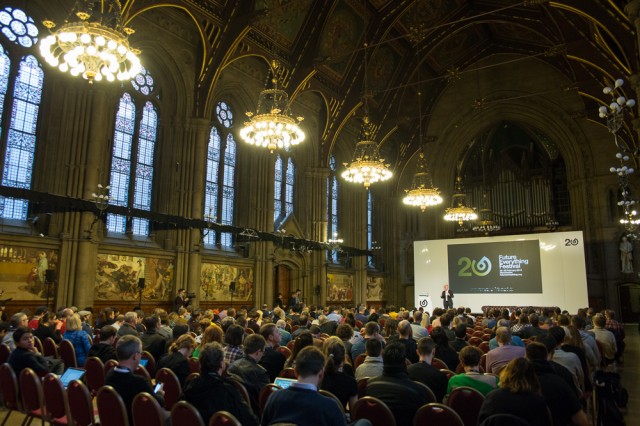
After a period, the data is presented back through a series of clear visualisations, revealing how advertisers are profiling users’ behaviour, as well committing privacy violations and illegal price discrimination. By subscribing to the service, you also automatically begin contributing to what has become the largest advertising data set in the world, assisting researchers in investigating questionable advertising practices.
Policy analyst Gemma Galdon-Clavell (@gemmagaldon) tackled similar themes in her talk on the impact of data profiling by corporate and state bodies. She revealed how, not only does most of this occur without our true consent (no one has the time to sit through Facebook’s 14,000-word terms of service and data use policy, for instance), but the information irretrievably taken, bought and sold on to us is then used to try and categorise and shape our decisions further.
In response, Galdon called upon users to become better acquainted with their ‘data double’, then deliberately sabotage it by playing with and subverting their online behaviour, shifting the power balance back towards the disenfranchised.
Perhaps of even greater concern, however, was her point about how politicians and policy makers are also increasingly substituting people for data. A practice not only widening the gap between society and the state, but deeply flawed as data profiling techniques are still pretty inaccurate.
Superglue, an equally deviant, easy-to-use service, was also demoed, enabling users to create and host their own web pages from the comfort of home. Superglue was born out of hacker and ‘critical engineer’ Danja Vasiliev’s (@k0a1a) belief that “The greater the dependence on a technology, the greater the need to study and expose its inner workings, regardless of ownership or legal provision.”
Its free-form setup offers a more creative alternative to the many template-ised ‘build your own’ packages available, while the ability to self-host introduces a greater degree of tangibility to the Web, while combating the increasing centralisation brought about by services such as The Cloud, and contributing to the wider goal of creating a self-owned and self-managed Web.
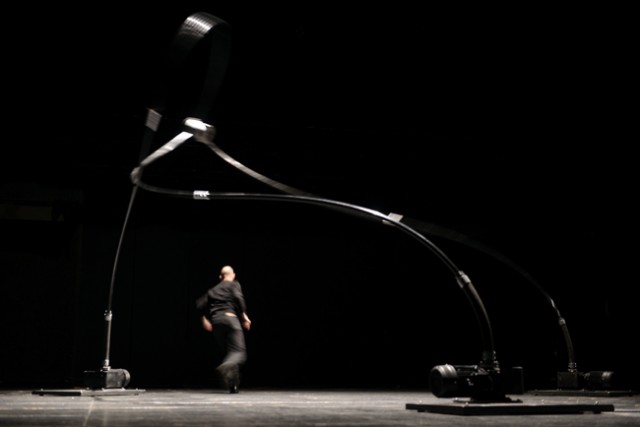
Though in need of some fine-tuning, also check out Ready to be dissolved: an online experiment offering those frustrated by the constant demands of social media — yet reluctant to opt out entirely — an interesting alternative. This essential lets your online friends pretend to be you.
Over at the Royal Northern College of Music, where the live art programme was being hosted, the prognosis for the digital scene was equally troubling; though without any of the conference speakers’ drive to find remedy.
This was captured most gravely perhaps by the writhing and tormented, malfunctioning gasps emitted by Cod.Act’s Nyloïd; a towering mechanical installation, perceptibly powerful as it came to life, yet pitiful as it drove itself to exhaustion, thrashing for over 30-minutes in an ineffectual struggle for freedom.
At the other end of the scale was The Well, a multi-sensory performance by Korless & Emmanuel Biard, involving smoke, lasers and harmonics from Moscow’s acclaimed Intrada Choir. A kind of 21st century son et lumière which, while mesmerising, left you feeling hungry.
The 20th anniversary of the festival also saw the launch of its inaugural film programme, which kicked off with Deep Lab: a short documentary about the work of a group of cyber-feminist researchers. In an interview, one of the women described her journey away from a career in journalism into the digital sphere:
“I saw where the world was going, and it was towards technology. If I wanted to have more agency there were certain things I needed to learn. That doesn’t mean this is where I want it to go, but […] if the river is flowing one way, I’m not going to be able to hold it back. Learning some tech skills and being able to navigate my way means I’m not reliant on all of Silicon Valley to tell me how to live my life.”
These words seemed to encapsulate much of the feeling at this year’s FutureEverything. The future may not be shaping exactly as we’d hoped; but it’s coming, so look sharp.
The closing firework of this year’s conference was a lecture by the acclaimed writer and sociocultural commentator, Warren Ellis (@warrenellis). Speaking to a packed-out room back at Manchester Town Hall, he made a somewhat paradoxical call for a festival that looks forward: “Ban prediction. Prediction causes litter. Prediction is the best circus act of all.”
Ellis’s point seemed to be; rather that making vain attempts to second-guess what’s coming, our focus should instead be on what kind of a future we want, and how to go about achieving it. With such wise words, I’d daren’t guess what next year’s festival holds in store.
Sara Jaspan
More on FutureEverything Festival here



